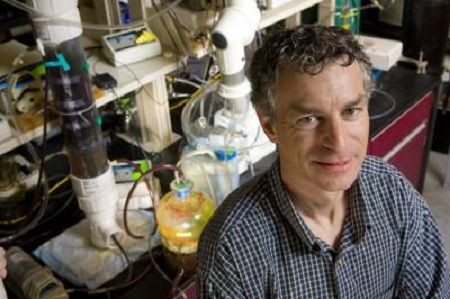Novel Third World Waste System Wins Grant, Costs $100 to Build

An environmental engineer at Duke University plans to develop a novel sewage system that will produce enough heat to kill bacteria and viruses most commonly associated with human waste.
Duke University announced that for less than $100 and only a few days of work, a single family in an undeveloped country can construct a solid waste disposal system that not only processes the waste but requires no electricity or additional energy while destroying harmful pathogens.
Marc Deshusses, professor of civil and environmental engineering at Duke’s Pratt School of Engineering envisions a simple system that can be constructed with everyday items designed specifically for Third World countries, where the disposal of solid human waste and the corresponding spread of disease is a leading health concern.
"People in countries that lack proper sanitation for their sewage desperately need a disposal method that is cheap, simple to implement and maintain, and reliable," Deshusses said. "We believe the proposed system could represent a major advance in environmental and health protection for developing countries."
The Bill and Melinda Gates Foundation, an organization that works to help people lead a good and healthy life granted Deshusses $100,000 to move his ideas from the laboratory to field-testing in 18 months.
How Does it Work?
In the system Deshusses designed, the waste would be directed to a chamber, likely constructed of a PVC pipe, once the waste is sealed in the chamber, an oxygen-free, or anaerobic, environment, the bacteria will digest the waste by the production of methane gas, that does not escape into the environment.
"The system works much like septic tanks used in many rural communities," Deshusses said. "However, in septic tanks, the methane produced is released into the environment, which a lost opportunity as well as an environmental liability. As a greenhouse gas, methane is 25 times more potent than carbon dioxide."
The new approach captures the methane and burns it, creating enough heat to kill pathogens in the wastewater.
Additional organic materials, like leftover food scraps or animal waste, might need to be added along with the human waste to boost the amount of organic matter and increase the methane produced by the anaerobic microbes, said Deshusses.
Field Testing:
"The ultimate goal is to build a device which we will take to Las Mercedes, Honduras, where it will be tested during an eight-week civic engagement project in which Duke students work with local organizations," Deshusses said. The program is the national Engineers Without Borders (EWB) effort, of which the Duke chapter has active projects throughout the Third World.
If the field-testing is successful Deshusses plans to test the device in up to five additional countries to be identified with the assistance of the Gates Foundation.
"We believe in the power of innovation -- that a single bold idea can pioneer solutions to our greatest health and development challenges," said Chris Wilson, Director of Global Health Discovery for the Gates Foundation. "Grand Challenges Explorations seeks to identify and fund these new ideas wherever they come from, allowing scientists, innovators and entrepreneurs to pursue the kinds of creative ideas and novel approaches that could help to accelerate the end of polio, cure HIV infection or improve sanitation."



























